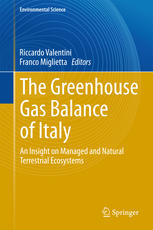

Most ebook files are in PDF format, so you can easily read them using various software such as Foxit Reader or directly on the Google Chrome browser.
Some ebook files are released by publishers in other formats such as .awz, .mobi, .epub, .fb2, etc. You may need to install specific software to read these formats on mobile/PC, such as Calibre.
Please read the tutorial at this link: https://ebookbell.com/faq
We offer FREE conversion to the popular formats you request; however, this may take some time. Therefore, right after payment, please email us, and we will try to provide the service as quickly as possible.
For some exceptional file formats or broken links (if any), please refrain from opening any disputes. Instead, email us first, and we will try to assist within a maximum of 6 hours.
EbookBell Team

4.8
14 reviewsThe book addresses in a comprehensive way the full greenhouse gases budget of the Italian landscape, focusing on land use and terrestrial ecosystems. In recent years there has been a growing interest in the role of terrestrial ecosystems with regard to the carbon cycle and only recently a regional approach has been considered for its specificity in terms of new methodologies for observations and models and its relevance for national policies on mitigation and adaptation to climate changes. In terms of methods this book describes the role of flux networks and data-driven models, airborne regional measurements of fluxes and specific sectoral approaches related to important components of the human and natural landscapes. There is also a growing need on the part of institutions, agencies and policy stakeholders for new data and analyses enabling them to improve their national inventories of greenhouse gases and their compliance with the UNFCCC process. In this respect the data presented is a basis for a full carbon accounting and available to relevant stakeholders for improvements and/or verification of national inventories. The wealth of research information is the result of a national project, CARBOITALY, which involved 15 Italian institutions and several researchers to provide new data and analyses in the framework of climate policies.